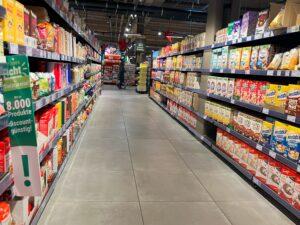Why was the price stop brought up again?
In his year-end speech, Prime Minister Viktor Orbán once again raised the possibility of imposing official prices if food prices do not fall. The issue has also been raised earlier by Minister of National Economy Márton Nagy, which suggests that the government is increasingly seriously considering this step. The decision could have significant political and economic implications, especially with the 2026 elections approaching, writes Telex.

According to the government’s communication, one of the key elements in the fight against inflation is keeping food prices under control, as they are the most tangible for ordinary people. The rise in prices is particularly sensitive to poorer, rural and retired voters, who constitute important voter groups for the government. Introducing another price cap could be a step with a message, even if its economic consequences are controversial.
Larger retail chains are waiting for now and have not issued official statements, but the National Trade Federation (OKSZ) has already indicated that it is analyzing the situation. Some market participants fear that another price freeze would cause further losses, while others believe that foreign discount chains could even benefit from the regulation, since they already operate at lower prices.
Based on the experience of previous official prices, it can be concluded that such measures can distort the market in the long run. Price freezes have often caused supply problems, and the prices of the affected products have increased through other channels. One of the biggest challenges for retail chains and suppliers is how to maintain their sustainable operation while maintaining prices set by the state.
Márton Nagy struck a stronger tone on food prices on February 21, and during negotiations with the National Trade Federation indicated that the prices of milk and eggs will be closely monitored. The government’s position is that if the market does not respond appropriately, the introduction of a price freeze will become inevitable. Further negotiations are expected with stakeholders in the affected sectors in the next two weeks to find a common solution.
Related news
Márton Nagy: Hungarian tourism has made history again
🎧 Hallgasd a cikket: Lejátszás Szünet Folytatás Leállítás Nyelv: Auto…
Read more >Márton Nagy: fiscal policy will play a greater role in economic recovery
🎧 Hallgasd a cikket: Lejátszás Szünet Folytatás Leállítás Nyelv: Auto…
Read more >Márton Nagy: the government expects 2-3 percent growth next year
🎧 Hallgasd a cikket: Lejátszás Szünet Folytatás Leállítás Nyelv: Auto…
Read more >Related news
dm’s Together for Babies program continues this year
🎧 Hallgasd a cikket: Lejátszás Szünet Folytatás Leállítás Nyelv: Auto…
Read more >








